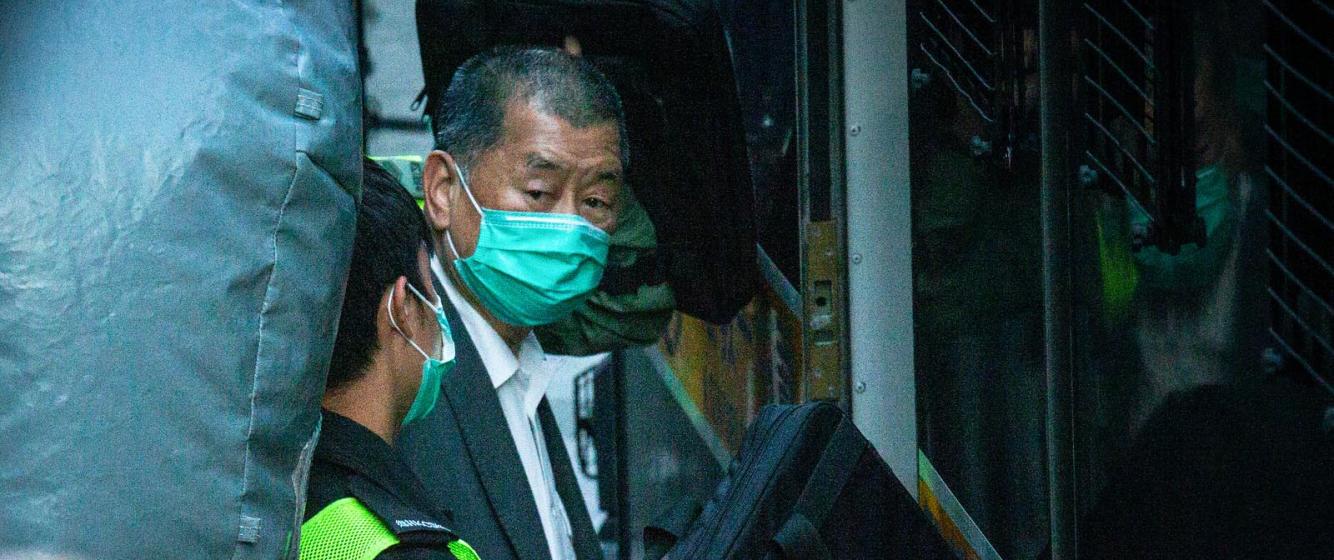Besides the precarity of researchers, educators, and students, we also deliberated on other impacts the HKNSL could have on research.
The roundtable participants generally believe that the law will increase the difficulty of data collection. As an historian colleague remarks, Hong Kong lacks archival law. The government has the discretionary power to decide what to retain, destroy, and release to the public domain. This may lead to partial findings, affecting historical interpretation and understanding. After the imposition of the HKNSL, our colleagues from different disciplines share the worry that it will increase the difficulty of conducting interviews and collecting oral testimonies. Informants may be reluctant to participate or share information due to the potential consequences under the draconian law. Even though researchers anonymize data and try to use safer online communication software, people would still be worried.
Even for studies that are by no means deemed “sensitive” or “political,” the shutdown of media outlets and taking down of online content also mean the disappearance of a lot of valuable data for research. For example, all contents of the pro-democracy newspaper Apple Daily were taken down by libraries and online news archives after it was forced to shut down due to the HKNSL in mid-2021.[1] Our colleagues from media and cultural studies, who rely on media content and news reports as sources of data, were concerned about the unprepared loss of valuable research data that may be useful many years later. Shortly after the raid of the Apple Daily, pro-democracy online news outlet Stand News also took down their opinion articles, citing a desire to protect the authors.[2] At the time when we wrote this blog post in 2022, Stand News and two more pro-democracy online news outlet – Citizen News and FactWire – have ceased operation, both as a direct or indirect consequence of the HKNSL.[3]
Desmond H.M. Sham (International Center for Cultural Studies, National Yang Ming Chiao Tung University, Taiwan) & Eva C.Y. Li (Department of Sociology, Lancaster University, UK)
[1] Li, D. (2022) Apple Daily’s News Clippings Deleted From Hong Kong Libraries; ‘June 4’ Disappearing From Library Search, The Epoch Times, 30 June. Available at: https://www.theepochtimes.com/apple-dailys-news-clippings-deleted-from-hong-kong-libraries-june-4-disappearing-from-library-search_4566674.html (Accessed on 1 July 2022).
[2] Stand News (2021) Stand News Notice (《立場新聞》公告), 27 June. Available at: https://www.thestandnews.com/media/%E7%AB%8B%E5%A0%B4%E6%96%B0%E8%81%9E-%E5%85%AC%E5%91%8A (Accessed on 30 December 2021).
[3] Hong Kong Citizen News (2022) 眾新聞告別 感謝讀者, 2 January. Available at: https://www.hkcnews.com/article/49873/%E7%9C%BE%E6%96%B0%E8%81%9E-49873/%E7%9C%BE%E6%96%B0%E8%81%9E%E5%91%8A%E5%88%A5-%E6%84%9F%E8%AC%9D%E8%AE%80%E8%80%85 (Accessed on 30 March 2022); FactWire (2022) 傳真社停止運作聲明, 10 June. Available at: https://www.factwire.org/%e5%82%b3%e7%9c%9f%e7%a4%be%e5%81%9c%e6%ad%a2%e9%81%8b%e4%bd%9c%e8%81%b2%e6%98%8e/ (Accessed on 2 July 2022).

Add new comment